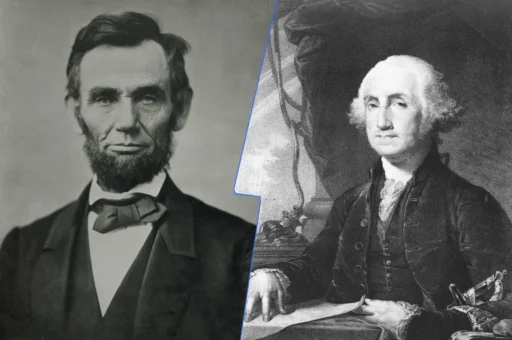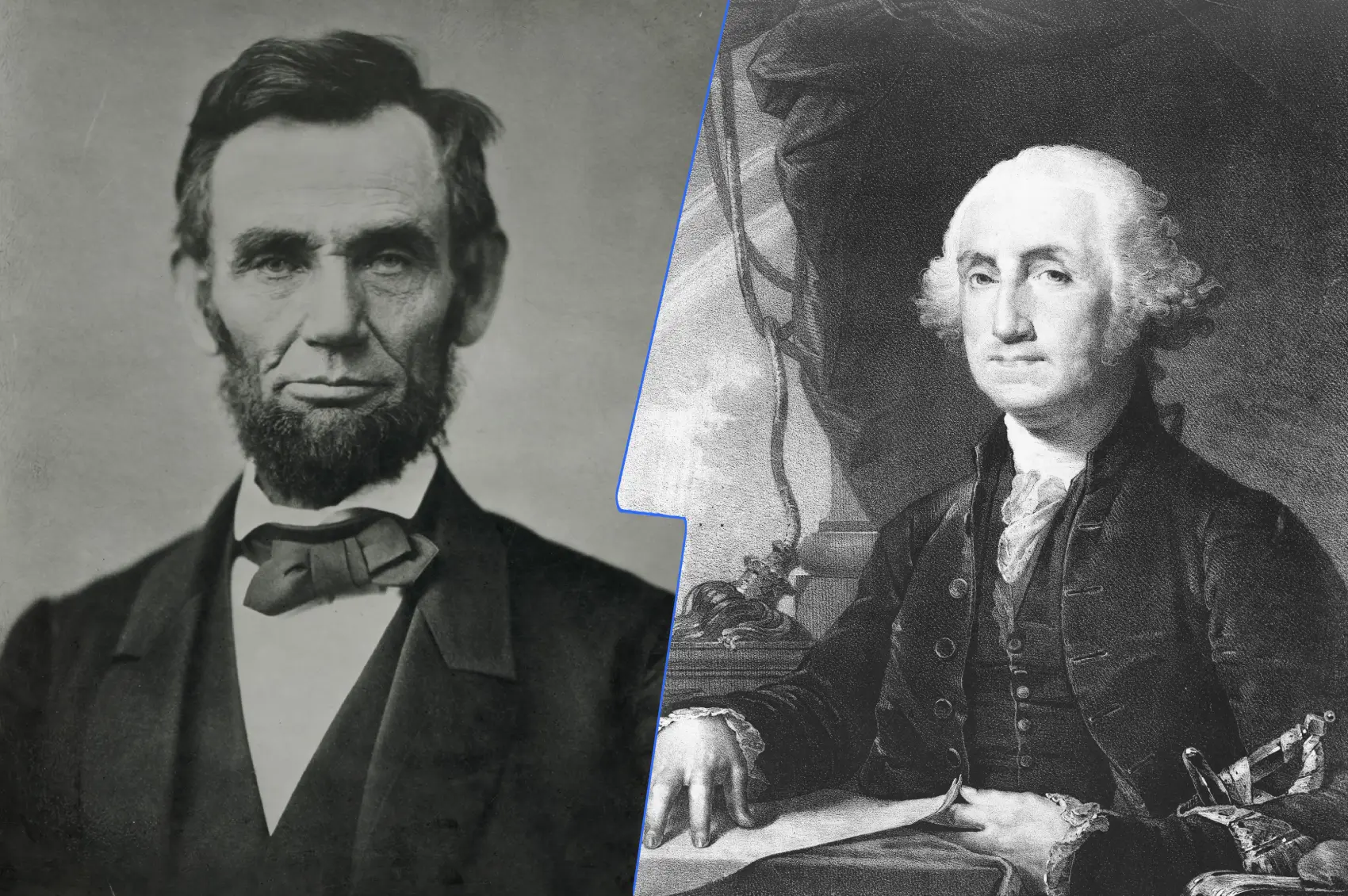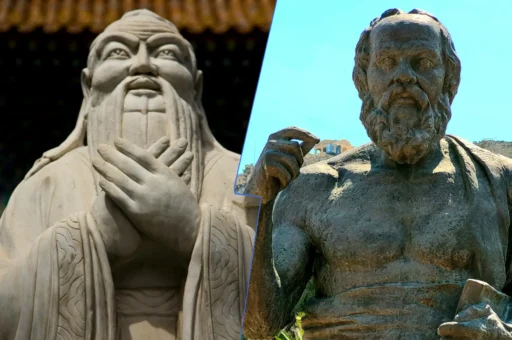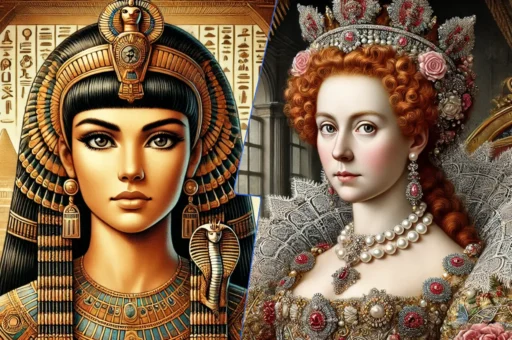Introduction
Abraham Lincoln and George Washington are two of the most revered figures in American history. Both served as Presidents of the United States and played pivotal roles in shaping the nation. While Washington is known as the Father of the Country, Lincoln is remembered as the Great Emancipator. This article delves into their lives, their achievements, and what makes them enduring icons.
George Washington: The Father of the Nation
Early Life and Background
George Washington was born on February 22, 1732, in Westmoreland County, Virginia, and died on December 14, 1799. He grew up in colonial Virginia, and although his family was of moderate wealth, they experienced financial difficulties after his father’s death.
Achievements and Contributions
- Leadership in the American Revolution: Washington served as the Commander-in-Chief of the Continental Army, leading the colonies to victory over British forces.
- Presiding Over the Constitutional Convention: He played a crucial role in the drafting of the U.S. Constitution.
- First President of the United States: Washington set many precedents as the first President, serving two terms from 1789 to 1797.
- Establishment of a Stable Government: He helped establish the foundations of the new federal government.
- Farewell Address: His Farewell Address provided guiding principles for the nation, emphasizing unity and warning against political factions and foreign alliances.
Personal Life and Character
Washington was known for his integrity, leadership, and commitment to the fledgling nation. He was wealthy, owning substantial land and slaves, which was common for Virginia planters of his era. Washington surrounded himself with trusted friends and advisors like Alexander Hamilton, Thomas Jefferson, and Henry Knox. He valued duty and service to the country above all else.
Legacy and Impact
Washington’s legacy as a unifying figure and a leader who could rise above partisan politics has cemented his place in history. His Mount Vernon estate attracts over a million visitors annually, and his influence is evident in numerous monuments and his portrayal on U.S. currency. Washington’s vision for the country continues to inspire leaders and citizens alike.
Abraham Lincoln: The Great Emancipator
Early Life and Background
Abraham Lincoln was born on February 12, 1809, in a log cabin in Hardin County, Kentucky (now LaRue County). He grew up in poverty, with little formal education, working various jobs before studying law and entering politics.
Achievements and Contributions
- Preservation of the Union: Lincoln’s leadership during the Civil War was instrumental in maintaining the integrity of the United States.
- Emancipation Proclamation: He issued the Emancipation Proclamation in 1863, which began the process of freedom for the slaves.
- Gettysburg Address: This speech redefined the purpose of the war and emphasized national unity and equality.
- Thirteenth Amendment: Lincoln championed the passage of this amendment, which abolished slavery.
- Homestead Act: This act encouraged Western migration by providing settlers with land.
Personal Life and Character
Lincoln, known for his humility, wisdom, and sense of humor, faced numerous personal and political challenges. He married Mary Todd, with whom he had four sons. Despite his humble beginnings, he became a self-taught lawyer and a skilled orator. Lincoln trusted and relied on allies such as William Seward, Edwin Stanton, and Ulysses S. Grant. He drew inspiration from the principles of liberty and equality.
Legacy and Impact
Lincoln’s legacy as a defender of the Union and a champion for freedom endures. His memorial in Washington, D.C., is a site of pilgrimage, and his speeches are still quoted for their eloquence and depth. The annual number of visitors to the Lincoln Memorial exceeds seven million, reflecting his lasting impact on American ideals and civil rights.
Comparative Analysis
Leadership Styles and Achievements
George Washington’s leadership during the Revolutionary War and his role in the founding of the United States set a precedent for future leaders. His achievements in establishing a stable government and his emphasis on national unity remain central to his legacy.
In contrast, Abraham Lincoln’s leadership during the Civil War and his efforts to end slavery highlight his tenure. His achievements in preserving the Union, promoting equality, and initiating significant legislation underscore his impact on American history.
Personal Traits and Backgrounds
George Washington came from a wealthy Virginia family and was known for his integrity, leadership, and commitment to duty. His wealth and status allowed him to focus on his military and political career.
On the other hand, Abraham Lincoln came from humble beginnings and was known for his humility, wisdom, and determination. His rise from poverty to the presidency exemplifies the American ideal of self-made success.
Inspirational Sources and Trusted Allies
Washington drew inspiration from Enlightenment ideals and was influenced by his contemporaries. He worked closely with trusted allies like Alexander Hamilton and Thomas Jefferson, who played key roles in his administration.
Similarly, Lincoln was inspired by the Declaration of Independence and the principles of liberty and equality. He trusted and relied on allies such as William Seward and Ulysses S. Grant, who supported his vision for the nation.
Public Support and Legacy
Washington enjoyed widespread support during his lifetime and remains a unifying figure in American history. His Mount Vernon estate and numerous monuments ensure his legacy endures.
Lincoln’s legacy as a defender of the Union and emancipator of slaves has earned him enduring support. The Lincoln Memorial and his speeches continue to inspire and resonate with people worldwide.
Enduring Influence and Visitor Numbers
More than a million people visit Mount Vernon annually, reflecting Washington’s lasting influence. His vision for a united, independent nation remains central to American identity.
In comparison, the Lincoln Memorial attracts over seven million visitors each year, demonstrating Lincoln’s profound impact. His dedication to unity and equality continues to guide American values.
Conclusion
George Washington and Abraham Lincoln, despite their different eras and backgrounds, both played pivotal roles in shaping the United States. Washington’s leadership in the founding of the nation and Lincoln’s efforts to preserve the Union and end slavery highlight their significant contributions. Their personal traits, achievements, and legacies continue to inspire and resonate with people worldwide.
Reader Engagement
What are your thoughts on George Washington and Abraham Lincoln? Share your experiences and opinions in the comments below! Don’t forget to share this article on social media and join the conversation about these two incredible leaders.
By examining the lives and accomplishments of George Washington and Abraham Lincoln, we gain a deeper understanding of their enduring legacies. Whether it’s Washington’s foundational leadership or Lincoln’s dedication to unity and freedom, both figures offer timeless lessons in leadership, integrity, and perseverance.





